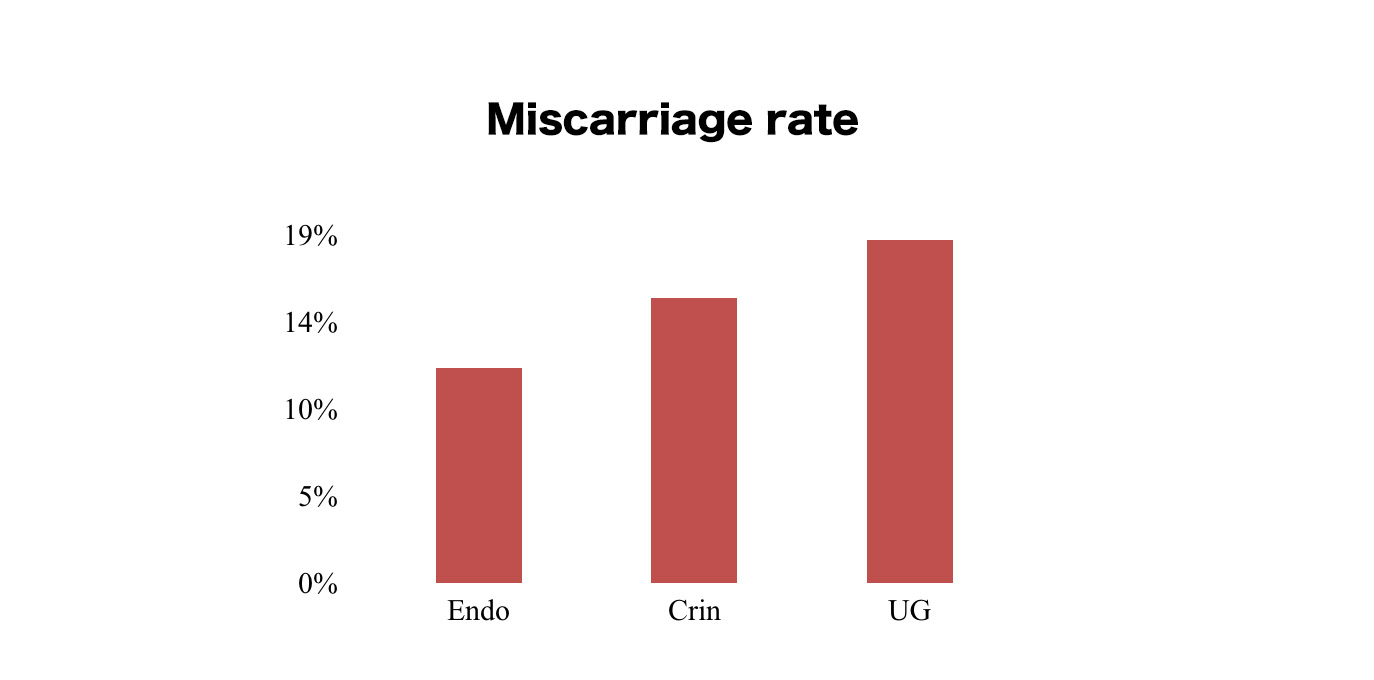
Progesterone is an endogenous steroid hormone that acts on the female endometrium to promote the growth of endometrial glands, thicken the endometrium, and open the window of implantation to prepare for embryo implantation. Progesterone continues to maintain the stability of the endometrium after embryo implantation so that the embryo can continue to grow. Progesterone is mainly produced in the ovaries, after the follicle releases the egg, the follicle will form the corpus luteum, and the corpus luteum will secrete progesterone; in addition, from the third month of pregnancy, the placenta will also secrete a large amount of progesterone.
During the embryo transfer cycle, the hormone replacement therapy (HRT) is used, so the ovulation function is suppressed and no lutein is formed, so additional progesterone supplementation is necessary. Currently, there are three main ways to supplement progesterone:
- Intramuscular injection: commonly known as progesterone injection, has a high bioavailability, the disadvantage is the pain of injection, as well as the occasional swelling, itching, pain, and even suppuration at the injection site.
- Oral: The most convenient to use, but after digestion and absorption in the gastrointestinal tract and metabolism in the liver, the oral form has poor bioavailability and is prone to systemic side effects such as dizziness, lethargy, nausea, and constipation.
-
Vaginal suppository: can act directly on the endometrium through local circulation, thus having a higher tissue concentration and fewer systemic side effects, but the disadvantage is that the commonly used capsule or gel formulations are prone to secretions and caked residues.
From the above description, we can learn that various progesterone supplementation methods have their advantages and disadvantages. Is there any supplementation method that can have minimal side effects and retain a certain degree of efficacy? Endometrin is a vaginal progesterone supplement which was launched in Taiwan last year. The drug claims to reach a stable concentration within 24 hours, and the tablet design can melt and disintegrate naturally in contact with water, reducing secretions and lumps. Because of its purported benefits to compensate for the shortcomings of current drugs, it is almost the best solution to the current luteinizing supplementation, but whether its clinical efficacy is as claimed remains to be confirmed. Therefore, we evaluated the clinical outcomes of frozen blastocyst transfer cycles using Endometrin as a progesterone supplement.

Stork fertility center published a retrospective study at TSRM 2018, excluding cases with too thin an endothelium or hormone (P4) concentrations unsuitable for implantation, and divided into three groups:
- Endo group: Vaginal supplementation with Endometrin 200 mg and oral Utrogeston 200 mg daily
- Crin group: Vaginal supplementation with Crinone 90 mg and oral Utrogeston 400 mg daily
- UG group: oral Utrogeston 400 or 800 mg daily
There were no statistically significant differences in mean age, endothelial thickness before transfer, and the number of transfers among the three study groups.
 As shown above, the Endo group appeared to have better clinical outcomes, but there were no statistically significant differences between the three groups.
As shown above, the Endo group appeared to have better clinical outcomes, but there were no statistically significant differences between the three groups.
 In addition, the miscarriage rates of the three groups ranged from 11.8% to 18.8%, with no statistically significant differences.
In addition, the miscarriage rates of the three groups ranged from 11.8% to 18.8%, with no statistically significant differences.
The side effects of progesterone supplementation have always troubled many women seeking to have a baby, and they often have to endure the discomfort caused by the medication in order to achieve optimal pregnancy. This study demonstrates that the use of the new drug Endometrin as a progesterone supplement has no significant difference in clinical pregnancy outcomes compared to conventional drugs, but reduces side effects and may be a new option for progesterone supplementation.


![[Egg Donation]Change the Mindset Then Get Pregnant](https://s3-ap-northeast-1.amazonaws.com/estork-assets/en/images/indexpic/20210315094618932813.jpg)

Luteal enhancement medication after embryo implantation plays an important role in the last mile of fertility. In addition to Utrogestan, the common luteal supplement drugs in Stork Fertility Center include Crinone and progesterone 25mg. The side effects of different types of drugs are different and are briefly described as follows.
During the consultation process, we often hear that our clients suffer from discomfort caused by luteal supplementation and that the effects and side effects of different drugs are also different. In vitro fertilization treatment is based on "personalized precision medicine", and there are no absolutely good or bad drugs, only the most suitable ones. The addition of Endometrin provides an additional option for luteinizing supplements.